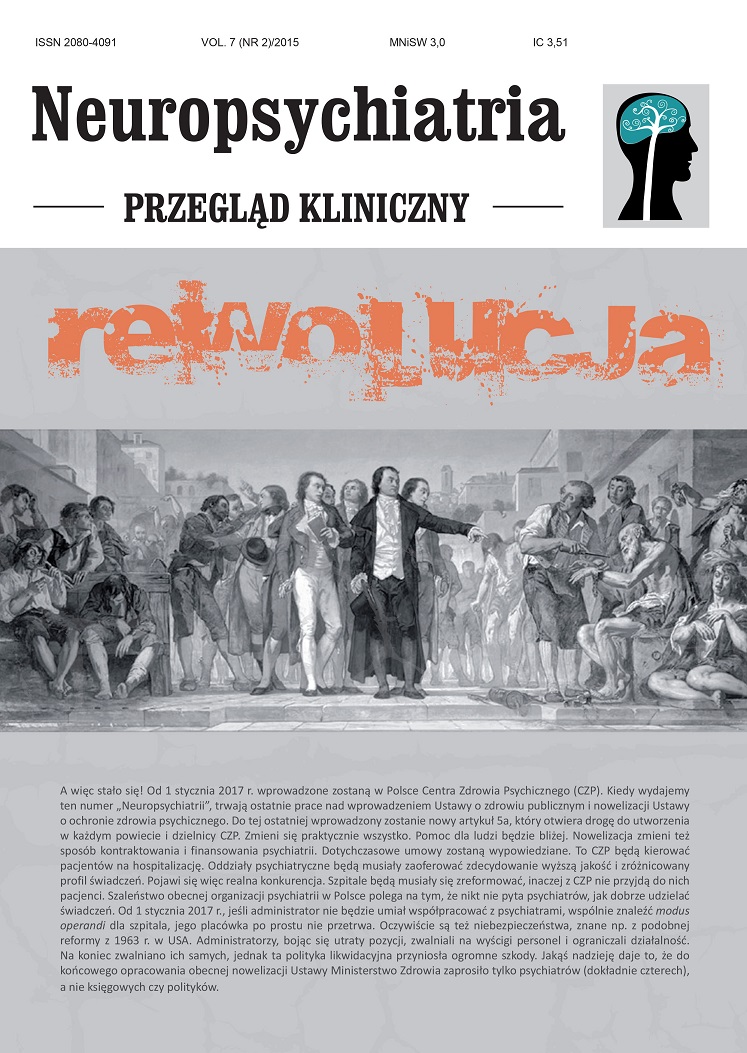Rationale for continuity of treatment of psychotropic medicines in health system Review article
Main Article Content
Abstract
Continuous administration of a particular drug is an important factor for effective treatment. Psychiatric patients should be constantly encouraged by psychiatrists but also by the national refunding system to use their medicines constantly. Any concerns that patients have might make them refuse to take a drug, lead to confusion or affect their adherence to the medicines. Psychiatric patients generally accept generic medicines, but are also stressed by constantly changing system of refunding drugs, including generic drugs. To implement generic substitution and generic prescribing successfully, it is important to offer a clear rules and guides on therapeutically interchangeable psychiatric products to help patients and healthcare professionals. The new problem is the phenomenon of generic drugs interchanging, when the patient’s access to his drug-of-choice is not protected by law. Is not acceptable to change “abruptly and easily” or delete some products from the refunding list of psychiatric medicines. That breaks the main rule, that the psychiatric treatment is heavily focused on stabilization.
Article Details

This work is licensed under a Creative Commons Attribution-NonCommercial-NoDerivatives 4.0 International License.
Copyright: © Medical Education sp. z o.o. License allowing third parties to copy and redistribute the material in any medium or format and to remix, transform, and build upon the material, provided the original work is properly cited and states its license.
Address reprint requests to: Medical Education, Marcin Kuźma (marcin.kuzma@mededu.pl)
References
2. Hassali MA, Alrasheedy AA, McLachlan A et al. The experiences of implementing generic medicine policy in eight countries: A review and recommendations for a successful promotion of generic medicine use. Saudi Pharm J 2014; 22(6): 491-503.
3. Online.
4. Alrasheedy AA, Hassali MA, Aljadhey H et al. Is there a need for a formulary of clinically interchangeable medicines to guide generic substitution in Saudi Arabia? J Young Pharm 2013; 5(2): 73-75.
5. Hattingh HL. Pharmacists’ responsibility and potential liability regarding generic substitition. Med Law 2009; 28(4): 697-704.
6. Łoza B. Pozarejestracyjne zastosowanie leków psychotropowych. Neuropsychiatria. Przegląd Kliniczny 2012; 4(1): 5-10.

